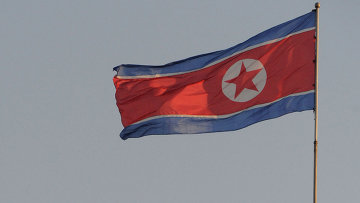MOSCOW, February 18 (RAPSI, Ingrid Burke) – A UN commission called for either the referral of North Korea to the International Criminal Court (ICC) or the creation of an ad hoc tribunal, lambasting the state as one with no parallel in the modern world in terms of the nature and scope of its alleged human rights violations Monday in a scathing report, which was promptly “categorically and totally” rejected by the isolated country.
The UN Commission of Inquiry on Human Rights in the Democratic People’s Republic of Korea was established by the UN Human Rights Council, and mandated to investigate allegations of “grave, systematic and widespread human rights violations” in North Korea, with the aim of ensuring against impunity.
The commission was charged with investigating violations connected with the right to food, prison camp conditions, torture and inhuman treatment, arbitrary detention, discrimination, freedom of expression, the right to life, freedom of movement, and forced disappearances.
In a report released Monday, the Commission urged the international community to address the country’s human rights record. Specifically, the report concluded that this might be achieved through action taken by the UN Security Council (UNSC), whether through referral of the situation to the ICC, or through the establishment of an ad hoc tribunal.
The report asserted: "The Commission finds that an international court or tribunal must be given jurisdiction, without delay, to address the long-standing and ongoing commission of crimes against humanity perpetrated in the Democratic People’s Republic of Korea."
With regard to its tribunal options, the report notes that the Security Council could refer the North Korea situation to the ICC, which would carry the practical advantage of having a pre-established institutional framework, rules of procedure, and a staff of professionals already in place. Thus, no time would be wasted in launching such proceedings, according to the report. The ICC lacks jurisdiction of alleged violations predating 2002, but the report notes that many of those believed to be responsible for pre-2002 violations have passed away or are otherwise unable to stand trial.
The report notes in the alternative that the UN could set up an ad hoc tribunal, such as those established for Rwanda and the former Yugoslavia.
Chapter VII of the UN Charter vests the UNSC with broad power to maintain or restore international peace and security in cases where such is sincerely threatened or breached. Chapter VII establishes with regard to non-military action: “The Security Council may decide what measures not involving the use of armed force are to be employed to give effect to its decisions, and it may call upon the Members of the United Nations to apply such measures.”
The report suggests that the establishment of such a tribunal could allow the international community to undercut the 2002 jurisdictional threshold at issue in the ICC scenario. However, the establishment of an ad hoc tribunal would be time-consuming and costly.
The report asserts that if the UNSC were to refrain from either referring the case to the ICC or establishing an ad hoc tribunal through the use of its Chapter VII powers, the UN General Assembly could take charge through powers established by the so-called “Uniting for Peace” resolution.
General Assembly Resolution 377 A (V) of November 3, 1950 states that if – due to a lack in unanimity – the UNSC fails to exercise its responsibility for the maintenance of international peace and security, “the General Assembly shall consider the matter immediately with a view to making appropriate recommendations to Members for collective measures, including in the case of a breach of the peace or act of aggression the use of armed force when necessary, to maintain or restore international peace and security.”
A letter dated January 20 of this year warned the Kim Jong-un that those responsible for alleged crimes against humanity would be held accountable under international law: “The Commission has found that systematic, widespread and gross human rights violations have been, and are being, committed by the Democratic People’s Republic of Korea, its institutions and officials. In many instances, the violations of human rights found by the Commission entail crimes against humanity… Any official of the Democratic People’s Republic of Korea who commits, orders, solicits or aids and abets crimes against humanity incurs criminal responsibility by international law and must be held accountable under that law.”
Reuters reported Monday that it had obtained a statement from North Korea’s diplomatic mission in Geneva, stating that it was based on fake material and voicing its rejection of the report, “categorically and totally.” The statement reportedly added that the rights violations listed in the report “do not exist in our country.”
Notably – evidence for the report was based largely on the accounts of “victims and witnesses,” though the Commission was denied entry into the country. As such, the class of victims and witnesses was made up of "defectors," or individuals that had voluntarily left the country. Upwards of 80 such victims and witnesses testified at public hearings held in Seoul, Tokyo, London, and Washington between August and October 2013.
The commission noted that though it had invited North Korean officials to participate in the hearings, their requests went unanswered.



